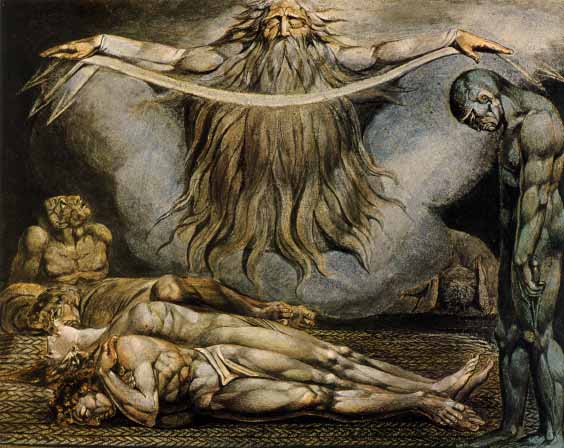
Umberto Eco's third and final lecture in his Ellman series, "Confessions of a Young Novelist," was entitled: "On the Advantages of Fiction for Life and Death."
The trivial answer to the question implied by the title of his lecture is the exploration of human psychology and the inculcation of moral value. But that is not the direction Eco wants to go. More interestingly, he must answer two separate questions:
- 1) How can a series of propositions that are avowedly untrue instruct us in the ways of life and death?
- 2) How can discourse on possible worlds influence our understanding of life and death?
Of fictional characters, Eco says, we can conceivably know more than we do of those human beings we encounter on a day-to-day basis (at school or the office or, tellingly, in our own homes). He claims he knows Leopold Bloom better than he knows his own father. Now that his father is dead, he can never uncover his inner secrets and the motivations behind his actions. Nor can he, other than trivially and by resort to hearsay, discover any more about his father's history. On the other hand, he can always discover more about Bloom each time he re-reads Ulysses.
For Eco qua philosopher, fiction clarifies the notion of truth. From the truth-conditional point of view, fiction should always present what is not. Fictional worlds are always incomplete and unhomogenous, never a complete state of affairs. A fictional world is a doxastic world—one in which the reader voluntarily suspends her disbelief. Fictional worlds are, further, parasitical on the real world. When it comes down to world-matching, we must be flexible. We know, for example, that no real British detective named Sherlock Holmes ever really resided at Baker Street, or that Nero Wolf never occupied a brownstone on West 35th Street in Manhattan. Similarly, in Act III of Shakespeare's The Winter's Tale, we know there is no Bohemian coast. But we accept these features as true de dicto, not de facto. In this sense, we read a fictional text like a musician reads a musical score.
Eco takes pains to distance his own reading from that of the deconstructionists. It is not the case that there are no facts, only interpretations. For Eco, fictional statements offer, if anything, a stronger form of truth than, say, cultural truths. Cultural truths, including scientific statements, are open to revision as new facts emerge. Fictional truths are at least as ontologically strong as cultural truths. Thus, as Eco would have it, that Hitler died in a Berlin bunker can, conceivably, be revised by the discovery of new facts—for example, a grave filled with his bones in Paraguay. That Nero Wolf lives at West 35th cannot. Truth must be as indisputable and immutable as the fact that Superman is Clark Kent. The theory of rigid designation must hold in fictional worlds. According to Eco, fictional characters also have ontological consistency (merely the valence differentiates them from real persons). Hitler was real; Clark Kent was not: this is consistent.
A narrative agreement is in effect between the author and readers to accept the fictional world as if it were our own. That Emma Bovary committed suicide is true in every possible world (except some rather poor speculative 'fan fiction', apparently). This is as true as that a right angle has 90 degrees—in the Euclidean world. Emma's world is the languaged world. The fate of Little Red Riding Hood, on the other hand, is in a bit of flux. She is not identified with a specific text—in an earlier version she is devoured by the wolf but in the Grimm retelling she is rescued by the woodsman. Sherlock Holmes and the like, because they are identified with a specific set of texts, take on greater significance than other fictional characters. Eco calls them 'cultural habits' or the creation of cultural imagination.
Now, Eco asks, can fictional characters lose their identities? It is possible in certain instances such as group text creation based on great narratives or illicit sequels or so-called fan fiction. But this, he says, is something like playing a Chopin Polonnaise on a ukulele; the timbre of the piano is crucial to the true appreciation of the work.
What we witness in reading fiction is what Eco calls the "shiver of destiny!" He brings up Hugo's depiction of the Battle of Waterloo. It reads like a helicopter shot in a movie. If Napoleon had only known of the sharp decline of the terrain, etc., etc., he might have detoured, delayed, etc. Today, we can create a very realistic Waterloo war game, yet in Hugo (as, coincidentally, in historical fact) Napoleon always loses. Similarly, in Hamlet, the good prince dies. There are many possible outcomes to his situation: he marries Ophelia, banishes the King, forgives his mother, etc. But, in the Shakespearean text, for all time, Hamlet's fate is what it is. Unchangeable.
What's more, neither Hamlet nor Napoleon can know their fates. They have no access to the world of the author (where possible worlds swirl in the imagination and disappear in the shredder of forgotten or discarded drafts). Oedipus cannot know the world of Sophocles, else he wouldn't have married his mother. And here's where fiction is most instructional: Fiction suggests our view of the real world is as limited as a fictional character's is of his own world.
Thus, the function of the unchangeable stories of fiction and the unchangeable nature of fictional characters is to teach us about fate and death, i.e., to show us the limits of our common human condition. This is the principle advantage of fiction for life and death.
No comments:
Post a Comment